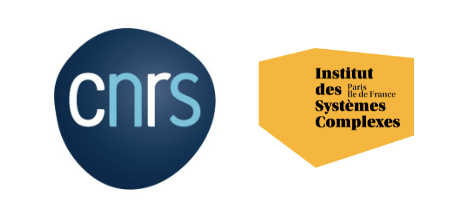Webinars: International outlook and scientific perspectives
In addition to the collective work carried out with various players in France, webinars are offered to all participants, whatever their site. They provide an opportunity to discover international initiatives or explore broader scientific perspectives.
Mathieu O’NEIL
University of Canberra / Australian National University

Example of policy in Australia
March 4, 2025 from 10:00 to 11:00 a.m.
Improving the assessment of information credibility : Opportunities and challenges in the Australian context
Mathieu O’Neil is Professor of Communication at the University of Canberra and Honorary Associate Professor of Sociology at the Australian National University. He is co-founder of the Virtual Observatory for the Study of Online Networks and founder of the Digital Commons Policy Council think tank. His current research focuses on the detection of echo chambers, the sustainability of the digital commons and the development of media education methods for schoolchildren appropriate to the attention economy. At the end of 2024, he co-edited a report for the Australian National Science and Technology Council on “What educational and related interventions can build resilience to misinformation and disinformation?”
Decoding Political Propaganda Through Data Science
March 31, 2025 from 10:00 to 11:00 a.m
From Posts to Publisphere: Using Data Science to Decode Political Propaganda
Social media has emerged as a crucial arena for political influence, where propaganda significantly shape public opinion. This study employs advanced data science methodologies, including machine learning, graph theory, and computer vision, to systematically analyze online political propaganda strategies during the referendum in Taiwan. A large-scale investigation of hundreds of political fan pages is conducted, extracting and analyzing tens of thousands of text-based posts, images, and user interactions from social media platforms. By leveraging multimodal analysis, the study examines the interplay between textual rhetoric, visual elements, and social engagement in online propaganda dissemination. Findings reveal patterns in propaganda deployment across political parties, offering insights into how digital campaigns shape public discourse. This research underscores the critical role of computational social science in decoding online political influence.
Ming-Hung WANG
Office of Information Technology at National Chung Cheng University, Taïwan

Ana Romero
Coordinated Inauthentic Behavior Analysis
May 6, 2025, from 2pm to 3pm
What exactly is Coordinated Inauthentic Behaviour (CIB), and why is it so hard to pin down?
In this session, Ana Romero-Vicente, a counter-disinformation expert at EU DisinfoLab , will explore the evolving landscape of CIB, its definitions, detection strategies, and the impact of emerging technologies like generative AI. Drawing on two of her most recent reports, she will:
🔍 Explore the four-branch CIB Detection Tree: Coordination Assessment, Source Assessment, Impact Assessment and Authenticity Assessment
🖼️ Present a visual framework to recognize key indicators of CIB based on real-world disinformation and manipulation campaigns.
📊 Provide practical tools and techniques for detecting and analysing coordinated efforts, with a focus on supporting the defender community in identifying and mitigating CIB’s effects.
The webinar is designed to be accessible to both newcomers and seasoned professionals. Whether you are a researcher, policymaker, journalist, or digital defender, you will gain actionable insights into how to recognize the symptoms of CIB, and why a clear and operational definition is crucial in the fight against disinformation.
Don’t miss this opportunity to sharpen your understanding of one of the most elusive and impactful threats in the information space.
Resisting manipulation
May 12, 2025 from 11:00 to 12:00 a.m.
Psychological Defence: Concepts and principles for the 2020s
This talk introduces some of the main ideas from a recent report which updates the Swedish Cold War concept of “psychological defence” to the post-2014 security environment. It examines four principles as constitutive of contemporary psychological defence:
- Resilience: coordinated efforts to foster societal resilience and reduce vulnerabilities in people, systems, and institutions.
- Threat intelligence: coordinated efforts to understand and track external threats.
- Deterrence: coordinated efforts to defend society and, where possible, shape the behaviour of external threat actors.
- Strategic communication: coordinated efforts to understand and counteract vulnerabilities and threats through engagement in the information environment.
As such, the report defines and develops upon the concept of psychological defence for the 2020s and beyond, in the context of debates about a potential new European-level institution performing a similar role.
James PAMMENT
University of Lund, Sweden

Contagion Models
May 12, 2025 from 14:00 to 15:00 p.m.
Unraveling the Dynamics of Online Misinformation: From Key Patterns to Containment
Julian Kauk

University Jena, Germany
Emma Beauxis-Aussalet
Vrije Universiteit Amsterdam, Netherlands

Ethics & Data
May 16, 2025 from 11:00 to 12:00
Ethics of information access: issues with fairness and affordances
Emma Beauxis-Aussalet is an Assistant Professor of ethical computing at Vrije Universiteit Amsterdam, where she investigates the means to make AI systems that are safe, fair, and transparent — for example by modeling their errors and bias. She is also the co-manager of the Civic AI Lab, which investigates the ethical issues of AI for public services, in collaboration with the city of Amsterdam, and the Dutch ministry of interior affairs.
Emma obtained her doctorate at Utrecht University with a dissertation on AI bias, for her work at the Centrum Wiskunde & Informatica (CWI). She also holds a Master in Computer Science, a Master in Communication, a Bachelor in Graphic Design and a Bachelor in Web Technology and Marketing. Before becoming a researcher, she acquired multidisciplinary expertise in the industry as a designer, R&D engineer, data specialist, and project leader.
Emma’s research has developed computational methods, statistics, user interfaces and data visualizations that enable fair and transparent AI systems. For her achievements in this field, she was named one of the 100 Brilliant Women in AI Ethics in 2021. She also received the 3rd WomENcourage Prize in 2021 for her contributions to the development of AI literacy and bias awareness in lectures and workshops.





You must be logged in to post a comment.